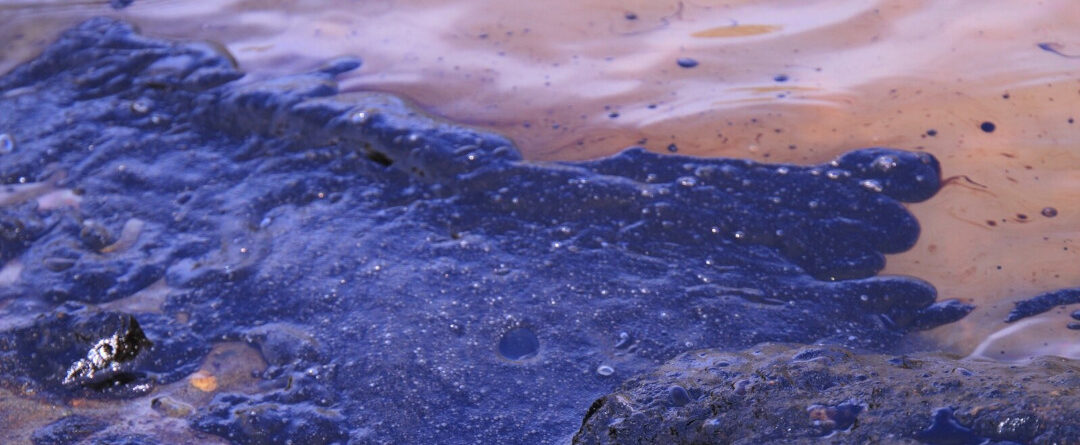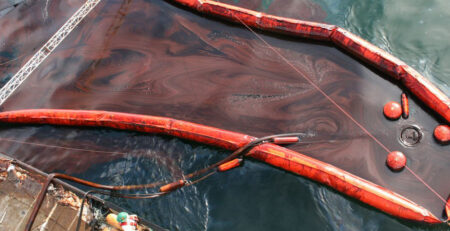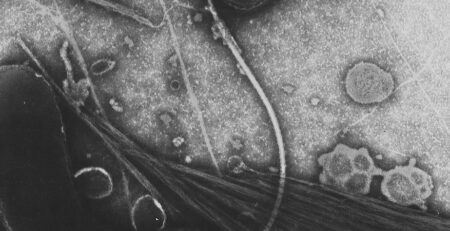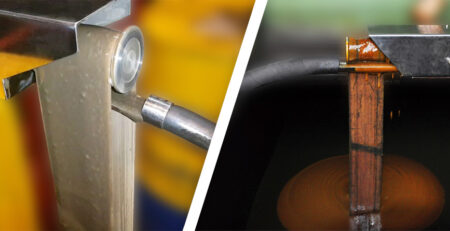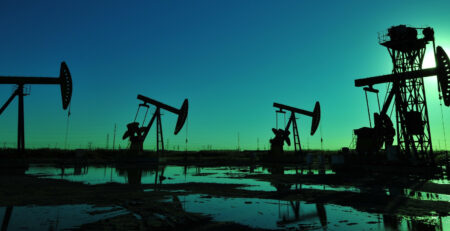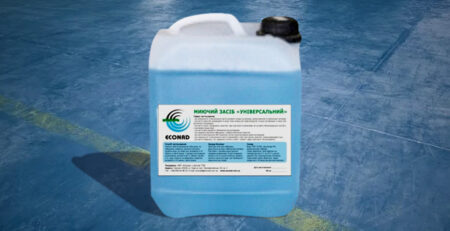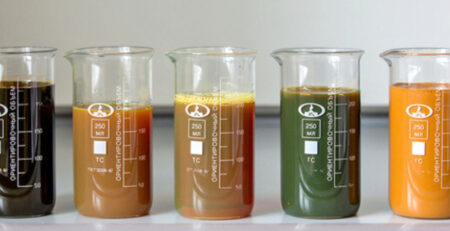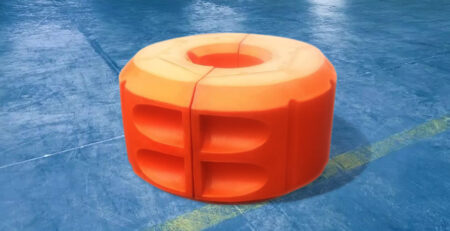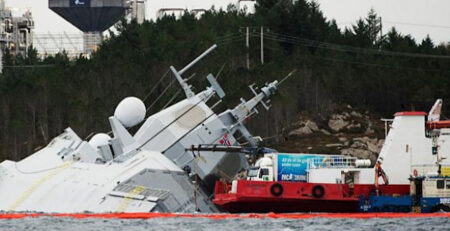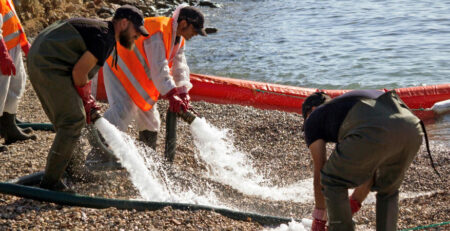Current trends in the development of biotechnologies of environmental protection from oil pollution and their implementation in Ukraine
Solov'ev V.I., Shevyakov V.V.
Kozhanova G.A.
Gubanov V.V.
Environmental pollution has acquired a global character and requires the adoption of measures adequate in scale to prevent this process and eliminate already existing sources of pollution. In this regard, the development and application of fundamentally new biotechnologies, based primarily on the use of microbiological methods, is of particular relevance for ensuring the environmental safety of enterprises of the marine and oil and gas complexes of Ukraine.
The most promising direction in the elimination of oil pollution is bioremediation method, which has no alternative for large areas pollution. Bioremediation, as a method of restoring oil-contaminated soils and aquatic ecosystems, is based primarily on the use of the biochemical potential of degrading microorganisms.
In the last decade, several dozen drugs have been proposed for these purposes. The most famous of them are the drugs “Putidoil”, “Oleovorin”, “Naftoks”, “Uni-rem”, “Roder”, “Centrin”, “Pseudomin”, “Destroyle”, “Micromycete”, “Leader”, “Valentis ”, “Devoroil” (Russia), “Rodobel”, “Rodobel-T” (Belarus), “Desna”, “Consortium of Microorganisms”, “Simbinal”, “Rodex” (Ukraine). The composition of these preparations includes monocultures or associations of more than 20 types of various oil-oxidizing microorganisms: bacteria, fungi, yeast. They are presented in the form of concentrated suspensions, pastes, powders (lyophilized bacterial culture). The disadvantages of their use for the elimination of oil pollution of water bodies, especially in the open sea, include the difficulty of creating and maintaining the required concentration of degrading microorganisms, due to its rapid decrease due to water exchange.
Under natural conditions, microorganisms are in an immobilized state and are attached to solid particles. The fixation of microorganisms on micro- and macroaggregates is important, first of all, for the manifestation of their metabolic activity. Working on the principle of biocatalysts, immobilized cells exhibit high metabolic activity without a significant increase in the biomass of free cells. Therefore, in modern environmental biotechnologies, it is immobilized oil hydrocarbon degrading bacteria with a known increased ability to attach to a solid surface and faster colonization of substrates compared to free bacterial cells that are widely used. These properties of immobilized bacteria ensure their rapid introduction into natural econiches and high destructive activity.
Currently, immobilized cells of microorganisms are effectively used in industrial biotechnologies as potentially highly active biocatalysts capable of carrying out polyenzymatic processes. The product of this technology is the Econadin biopreparation developed by NPP Econad, the first in the CIS — sorbent and hydrocarbon destructor oil, based on the use of immobilized bacterial cells. The manufacturing technology of this drug, based on the use of natural components as reagents, ensures the production of immobilized bacterial cells in the form of bioflocs – one of the types of cell aggregation, which, in turn, can be firmly fixed without damaging cells on carriers – i.e. on any substrates (soil, sand, plant residues, minerals, etc.), regardless of their porosity. Econadin is a biofloc of Pseudomonas fluorescens bacteria (association of two strains) fixed on an organic substrate – peat. Biofloc contains a certain supply of nutrients – mineral and organic, which contributes to the long-term maintenance of the viability of bacteria, their physiological and destructive (functional) activity and the active synthesis by pseudomonads of an emulsifier of oil products of an exopolysaccharide nature. As a result, emulsified petroleum products are easier to degrade in the aquatic environment. Bioflocs exhibit increased resistance to pollutants and cause active introduction of degrading bacteria into soil and water ecosystems. At the same time, bioflocs provide buffering of the medium at pH 7, which contributes to the deep decomposition of oil hydrocarbons and other organic compounds.
The sorption capacity of the drug “Econadin” in relation to oil hydrocarbons exceeds the known organic sorbents. The adsorption of oil on the preparation is accompanied by its biocatalytic transformation, while desorption is practically absent. Unlike bacterial preparations obtained by fixing microorganisms on neutral sorbents of synthetic or mineral origin, Econadin is completely utilized in the natural environment due to the natural organic carrier.
More than twenty years of experience in the use of microorganism strains of bacteria destructors, which are part of “Econadin”, has shown their effectiveness in the purification of industrial storm water from persistent organic azo dyes, pesticides, surfactants, phenols, polycyclic aromatic hydrocarbons, formaldehyde, etc.
Currently, Econad Research and Production Enterprise continues to develop new types of sorbents – destructors of oil hydrocarbons. So, on the basis of the domestic sorbent – expanded hydrophobized perlite “Zhemchug”, a fundamentally new sorbent was created, which also has a pronounced destructive activity. This sorbent-destructor is aluminosilicate granules with a porous surface, treated with a water repellent, and as a destructive beginning, it contains bioflocs of bacteria of the genus Pseudomonas.
Promising developments in the new direction of “econadine” environmental biotechnologies include a method for obtaining a bioemulsifier produced by destructor bacteria. The emulsifier is non-toxic, does not contain synthetic surfactants and accelerates the processes of destruction of petroleum products in aquatic ecosystems not only by specialized cultures of degrading bacteria introduced into the reservoir, but also by representatives of the native microflora.
In addition, Econad Research and Production Enterprise has created special biosorption booms that have both sorption and destructive activity in relation to a wide range of petroleum products, due to the use of Econadin as a filler. At the same time, their simplified version is produced – sorbent booms with synthetic filler, which allows reduce their cost. Booms are designed to maintain the purity of the water environment in places where oil films are likely to appear (for preventive purposes in the areas of oil fields, oil terminals, berths of ports and shipyards, etc.); for localization and collection of oil in cases of minor (focal) spills; for the localization and collection of oil in shallow water, for the protection of the coastline from oil pollution, for the elimination of oil pollution of marine areas and inland waters. On land, they are used to contain spills and prevent the spread of pollution.
Accidents on oil pipelines remain a significant environmental problem at the enterprises of the fuel and energy complex, due to their wear and tear, aging, as well as during the transportation of oil and oil products by various modes of transport. Damage to pipelines associated with unauthorized tie-ins also causes significant environmental damage. Measures to eliminate such emergencies should first of all be aimed at localizing oil pollution, preventing its penetration into groundwater and reservoirs. The set of measures for the restoration of contaminated soil cover and agricultural land developed by NPP Econad includes: localization of oil pollution, collection of commercial petroleum products, as well as contaminated plant residues for processing or disposal; chemical reclamation (use of minerals – bentonite clays, framework silicates, red mud, bauxite ores) and bioremediation. The applied technology is based on the use of a complex of agrotechnical measures (plowing, application of mineral fertilizers, irrigation) and special biotechnological measures using the Econadin preparation and a liquid culture of bacteria-destructors of oil products. For agricultural lands, biological reclamation (phytomelioration) is additionally carried out.
The creation of local treatment facilities and closed water supply systems based on microbiological cleaning methods, including the use of econadin technologies, is of great importance in reducing the level of environmental pollution with oil products and other bioresistant pollutants. These are Econad filters, bioplato, the use of biosorbent booms in systems of cascades of settling ponds. Their use at the treatment facilities of the Karpatnaftohim enterprises (Kalush), AK Cargill (Donetsk), VOLVO service station, Pobedy park, tram and trolleybus depot (Kyiv), at 5 recreation centers of the resort Zatoka and others showed the high efficiency of such solutions.
Ecodynamic technologies are widely used for cleaning the waters of the ports of Odessa, Izmail, Kerch, Reni. Extensive experience has been accumulated by ecologists of the commercial sea port of Yuzhny, who have repeatedly and successfully used the drug even on the high seas.
With equal success, our technologies are also used to eliminate the consequences of accidents and restore oil-contaminated lands and inland waters by the companies Ukrnafta, Uktransnafta, Ukrgasdobycha, and others. But their scope is not limited to this either. Thus, the Ukrainian-American enterprise Raytheon Technical Services, which carried out the dismantling of strategic bombers and other military equipment within the framework of the Joint Threat Reduction program, has accumulated positive experience in the use of the Econadin drug to eliminate the techno-mobile first aid kits that are inevitable during such operations, Econad Research and Production Enterprise has developed and production of Econad ecological first aid kits has begun. These mobile first-aid kits are equipped with a set of tools for quickly collecting spilled oil products from the surface of the soil, asphalt and concrete surfaces, as well as for preventing their entry into storm sewers.
Despite the obvious advantages and many years of positive experience in the application of biotechnologies at the enterprises of the oil and gas and marine industries, the scale of their industrial implementation today is clearly insufficient. First of all, this is due to the lack of domestic regulatory documents on the use of biotechnologies, the insufficient level of training of environmental specialists in this matter, the absolutely meager funding of research work on this issue, both by scientific institutions of the Ministry of Education of Ukraine and the National Academy of Sciences of Ukraine, and departmental research institutions.

